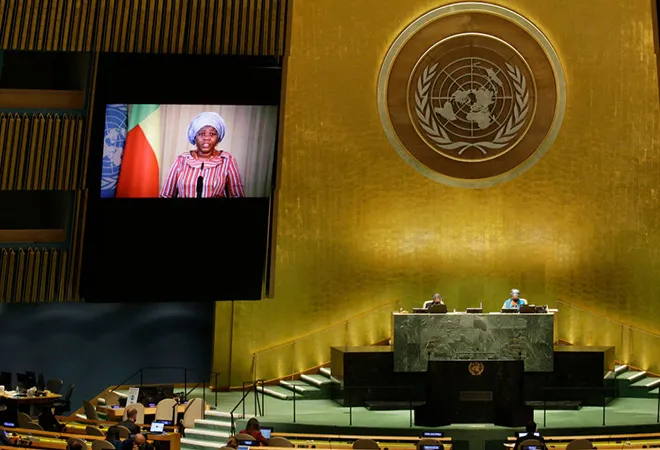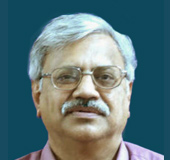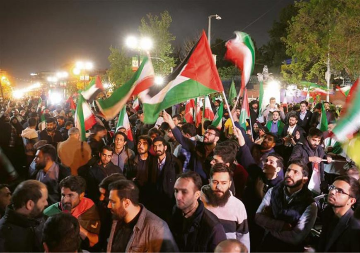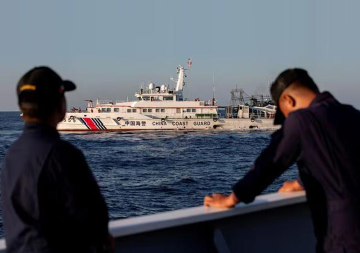
This brief is a part of
The Ukraine Crisis: Cause and Course of the Conflict.
Russia’s invasion of Ukraine on 24 February 2022 coupled with prolonged and determined resistance of the people of Ukraine against the invading army has opened up a new chapter in contemporary world politics. Arguably, President Vladimir Putin, during the past two decades, has been proactively working towards restoring the Russian power in world politics after the fall of the erstwhile Soviet Union in 1991. The developments such as the Russian invasion of Georgia in 2008, Russia’s illegal annexation of Crimea in 2014 and Russia’s attempts to capture the Donbas region of eastern Ukraine in this ongoing war have explicitly underlined Putin’s security concerns in the region. In fact, Russia has been anxious to contain the eastward expansion of the North Atlantic Treaty Organisation (NATO) which has 30 member states. These include members of the Warsaw Pact led by the then Soviet Union such as Poland, Hungary, Albania, and Romania etc. Obviously, the induction of Ukraine into NATO could have brought the US-led alliance right at the door step of Russia. Since Russia treats the mineral-rich Ukraine as an integral part, it aspires to have a pro-Russian regime in Ukraine. However, Ukraine’s defiance of Russia together with Zelenskyy regime’s endeavours to befriend the US apparently provoked the Russian aggression. The US and its allies have already imposed unprecedented economic sanctions against Russia to bring the latter to its knees. By any objective standards, Russia’s invasion is a blatant violation of the international law. The war has not merely led to loss of lives but according to the UN High Commissioner for Refugees more than 10 million people from Ukraine have fled to countries such as Poland, Romania, Slovakia, Moldova, and Hungary. This, in turn, has triggered a major humanitarian crisis. Consequently, the United Nations General Assembly (UNGA) has suspended Russia from the Human Rights Council on 7 April 2022. The Russian aggression of Ukraine has offered a grim reminder of the former Soviet or the Czarist imperialism that strove to control spaces in eastern Europe in the pursuit of bolstering Russia’s security. In essence, imperialism has often signified asymmetric forms of interdependence between materially advanced and backward societies. It will be worth looking at how African states perceive imperialism in the current context.
The induction of Ukraine into NATO could have brought the US-led alliance right at the door step of Russia. Since Russia treats the mineral-rich Ukraine as an integral part, it aspires to have a pro-Russian regime in Ukraine.
Reactions to the Russian invasion from African states
Following the Russian invasion of Ukraine, the UNGA in a resolution adopted in its meeting held on held on 2 March 2022 demanded that Russia immediately end its military operations in Ukraine. The resolution was supported by 141 out of 193 member states. However, at the UNGA meeting out of 54 African states only 28 supported the resolution, 17 African countries abstained from voting including Algeria, South Africa, and Angola. While Eritrea along with North Korea, Belarus, Russia, and Syria voted against the resolution. Eight African countries, including Cameroon, Ethiopia, and Morocco did not cast their vote. As far as Ukraine-Africa ties are concerned countries like Morocco and Nigeria had roughly 8,000 and 4,000 students studying in Ukraine and the African countries were concerned about the treatment of those students as well as their evacuation. Ukraine also exported goods worth US $4 billion to Africa. Regarding the Russo-Ukraine war even though the current Chair of the African Union (AU) and President of Senegal Macky Sall stood for immediate secession of hostilities and in defence of international law to ensure territorial integrity of Ukraine, the reticence of at least half of the African states to side with the UNGA resolution gave an impression that there is a moral failure on part of Africa to stand up against the invader. However, it might be inappropriate to perceive the stand taken by African states in such facile ways. By recognising the fact that Russia’s indefensible aggression against Ukraine is against the rules-based international order and that excruciating suffering inflicted on the Ukrainian people is a crime against humanity, it may be worth exploring the complexities of the current crisis through the prism of imperialism and its linkages with Africa.
Russian expansionism in Africa
Unlike the Russian imperialism, Africa was more exposed to the Western dominance through colonialism, racism, and imperialism. Ironically, the former Soviet Union had actively supported anti-colonial and anti-racist movements in Africa and provided developmental assistance to newly-born African states that opposed the US-led imperialism. To put it simply, neither the former Soviet Union nor Russia carry the baggage of the western countries. Even if the Russian imperial power was preeminent in the eastern Europe, the Africans were not well aware of the Russian dominance over the East European countries till Russia emerged as a dominant player in Africa.
As far as Ukraine-Africa ties are concerned countries like Morocco and Nigeria had roughly 8,000 and 4,000 students studying in Ukraine and the African countries were concerned about the treatment of those students as well as their evacuation.
Over the years, Russia has become a force to be reckoned with in Africa. For instance, initially the French militarily intervention in 2013 against extremist Jihadist terrorists to restore order in Malian polity was welcomed by Malians. However, as the French troops withdrew from Mali, Russia replaced France in Mali as security provider through the Wagner Group. The dubious private army of the Wagner Group, operating since 2014, is nominally private but linked to state. It is deployed in Ukraine as well as in other African countries. The Ukraine war has also heightened French/European concern over Russia’s expanding influence in the Sahel region, in particular, and Africa , in general. In fact, after the Russo–African summit of October 2019 held at Sochi that was attended by all the 54 African states, Russia has accelerated the expansion of its economic, commercial, strategic, and military activities in Africa.
Russia’s creeping expansionism has touched several resource-rich countries including the Burkina Faso (gold, zinc, copper, and manganese), Guinea (gold, diamond, and oil), Central African Republic (CAR) (uranium, gold, and diamond), Sudan (chromium ore, iron ore, copper, silver, and gold) and Mali (gold and bauxite). Moreover, Russia has also befriended oil-rich and strategically significant countries on the Mediterranean such as Libya and Egypt. With naval base in Port Sudan, Russia is trying to expand its presence in the Horn of Africa. The Wagner Group is being deployed by Russia to counter insurgencies in Africa. In substance, by deploying extra-legal instruments, Russia has been supporting governing elites/autocratic regimes to serve its interests in various extracting industries in mineral-rich countries. It has by now acquired mastery over running misinformation campaigns and bartering arms for resources. Russia, as exemplified in the CAR and Guinea, is routinely interfering in the domestic affairs of the African countries. African states including Algeria, Angola, Burundi, Guinea, Equatorial Guinea, Madagascar, Mozambique, South Sudan, Uganda, and Zimbabwe are getting direct patronage from Russia in terms of purchase of arms, technology, and investments. In addition, the Russian invasion threatens global chain of wheat supply as 25 percent of the world’s wheat and 90 percent of the East African states’ wheat is imported from Russia and Ukraine. The war won’t merely aggravate food insecurity but force African countries to undergo economic hardships owing to the rise of fuel prices and the decline in trade.
African states including Algeria, Angola, Burundi, Guinea, Equatorial Guinea, Madagascar, Mozambique, South Sudan, Uganda, and Zimbabwe are getting direct patronage from Russia in terms of purchase of arms, technology, and investments.
Towards a cautious approach
Having dealt with the imperialist West and expansionist Russia, the African countries are constrained to adopt a cautious approach towards Russo–Ukraine war by only pleading for the secession of hostilities. Obviously, in spite of their growing ties with Russia, the African countries have had well-structured ties with the European Union (EU) countries and the US for the past few decades. In fact, if the West aspires to reduce its dependence on Russia for energy security, the African countries, endowed with energy, could as well be used as alternative source of energy to strike partnership deals with EU countries and the US, in the long run. For instance, Tanzania has the sixth largest natural gas reserves in Africa, Senegal has recently discovered 40 trillion cubic feet of natural gas, and Nigeria is already a Liquefied Natural Gas (LNG) supplier to several EU countries. Along with Niger and Algeria, Nigeria is also embarking Trans-Saharan Gas Pipeline to enhance the energy supply of the EU markets. Thus, like Russia, the EU countries and the US will also continue to matter for Africa.
Conclusion
Russia’s violation of international law through aggression in Ukraine has prompted a number of African countries to manage a tightrope walk without siding with any of the contending parties. The nuanced positions of African states could be better understood through the prism of imperialism. Though in the past, to counter western imperialism, the former Soviet Russia had supported the anti-colonial and anti-racist struggles in Africa, ironically, Putin’s Russia has now emerged as one of the expansionist powers in Africa with imperialist tendencies. Owing to their dependence on Russia as well as the western powers, a number of African states have adopted a cautious approach while serving their national interests in the process of navigating through the Russo–Ukrainian conflict.
The views expressed above belong to the author(s). ORF research and analyses now available on Telegram! Click here to access our curated content — blogs, longforms and interviews.



 This brief is a part of
This brief is a part of  PREV
PREV


